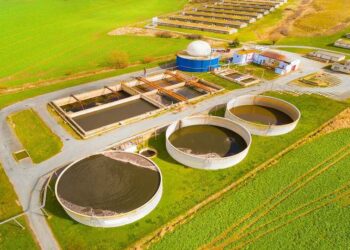In some ways UGI Utilities is fortunate to be so far ahead of the game when it comes to infrastructure replacement. The natural gas distributor, which serves 600,000 customers in 45 eastern and central Pennsylvania counties and one county in Maryland, has about 86% of its 12,000 miles of pipeline already constructed of contemporary materials.
Still, that leaves about 1,200 miles of bare steel and 350 miles of cast-iron infrastructure to replace throughout the region’s challenging terrain, often facing brutal weather.
“All the cast-iron in our system will be replaced by February 2027, and the bare steel pipe in the UGI system will be replaced by 2041,†said Bob Krieger, UGI vice president of operations. “We are on an aggressive schedule for getting that pipe out of the ground, without question.â€
The $1.2 billion replacement program, which began in February 2012, is on pace to update 65 miles of pipeline this year alone. The Pennsylvania Public Utility Commission (PUC) recently approved the company’s long-term infrastructure improvement plans and an accelerated recovery mechanism, or distribution system improvement charges (DSIC), when eligible.
Krieger, whose energy industry experience spans nearly 28 years, all at UGI, ranging from distribution operations, construction and maintenance to GIS implementation, expects his company to maintain “an aggressive schedule†for the next 14 years, spending about $85 million or more annually.
The size of the pipe being replaced varies but most are smaller diameter mains, measuring 3 to 8 inches. While UGI still has some pipe from the early 1900s to replace, Krieger said the company is “fortunate from that perspective†in that compared to other gas utilities its infrastructure is relatively new.
Fortunate or not, the Reading, PA-based natural gas supplier still faces the same logistical problems that confront any company working in congested areas such as WilkesBarre Scranton and Pennsylvania’s state capital, Harrisburg.
“I think every utility is faced with these challenges,†the Penn State University graduate said. “UGI engineering and operations personnel have had numerous meetings with Harrisburg authorities about ongoing infrastructure replacement downtown. When we are doing our work, particularly in Harrisburg, a lot of it has been done after hours to avoid congestion around the capitol. That’s not uncommon for us.â€
Still, there are times that UGI closes roads or detours traffic for the safety of the public and its employees. When that happens, the company keeps residents abreast of the work being done through a suite of the communication tools and social media alerts, which provide roadwork bulletins and other advisories. UGI also employs some old standbys to get the word out: door-hangers and public meetings.
One of the best ways the company has found to keep long-range traffic and pedestrian problems to a minimum is by coordinating its work with other entities that are planning water or sewer projects.
“We’ll try to work in tune with the municipality that’s doing that work,†Krieger said. “The last thing we want is for a city to do a digging project, and then two years later UGI comes into that same area and starts replacing mains on the same streets.â€

















































